A light stick that can disinfect an airplane or hospital room from all traces of the novel coronavirus in under 30 minutes. A breathalyzer that looks like a cigar that can detect COVID-19 infection in 60 seconds. Robots that help care for hospitalized and highly infectious patients. Artificial intelligence-driven computerized vision that detects and alerts people not wearing a mask in a public space.
There is a long list of elite, advanced, and utterly amazing Israeli defense technologies usually used to keep Israel secure, which are now being repurposed for the civilian sector, and especially the health arena, to deal with the SARS-CoV-2 virus behind the COVID-19 pandemic.
“First, we learn what the need is, the constraints, and the environment. Then we build a team for each and every challenge to work together with the medical staff to understand, explore and find solutions,” Amira Sharon, Ph.D. VP of Strategy and R&D at Israel Aerospace Industries (IAI), tells NoCamels, referring to the national inter-institutional and multidisciplinary collaboration in which IAI is taking part to curb the spread of the COVID-19 virus. “We use our expertise, our ingenuity, innovation and capabilities to find solutions in this crisis situation. We focus on solutions for the here and now.”
In Israel, repurposing defense technologies for civilian uses is not new. There are dozens of examples in our everyday lives, from automotive cybersecurity solutions based on military technologies to breast cancer detection solutions taken from optimized defense imaging sensor technologies.
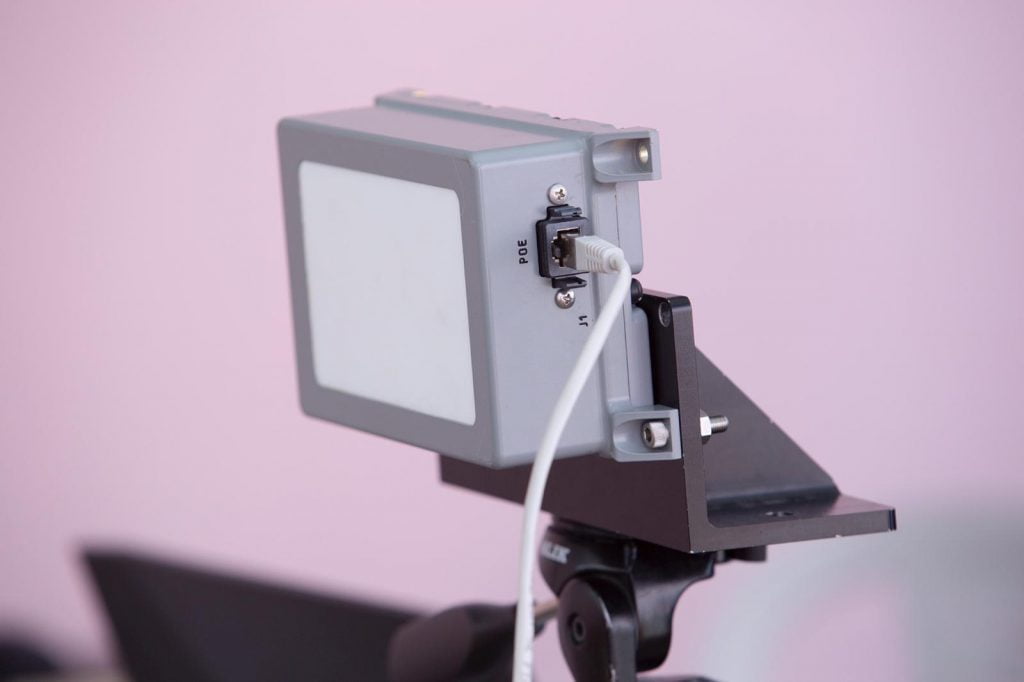
But the urgency of finding ways to safely live alongside this new deadly virus has created a unifying moral responsibility that is pushing teams, competitors, and the government to work together.
In fact, global collaboration has really blossomed in the face of the pandemic
“Alongside evidence-based public health measures, innovative COVID-19 diagnostics, therapeutics and vaccines are needed – in record time and at record scale and access – to save millions of lives and countless trillions of dollars, and to return the world to a sense of ‘normalcy’,” reads a World Health Organization mission statement by global health actors and private sector partners calling for a global collaboration to accelerate the development, production and access to COVID-19 essential health technologies.
Israeli entrepreneurs, scientists and researchers are involved in numerous COVID-19-related global initiatives.
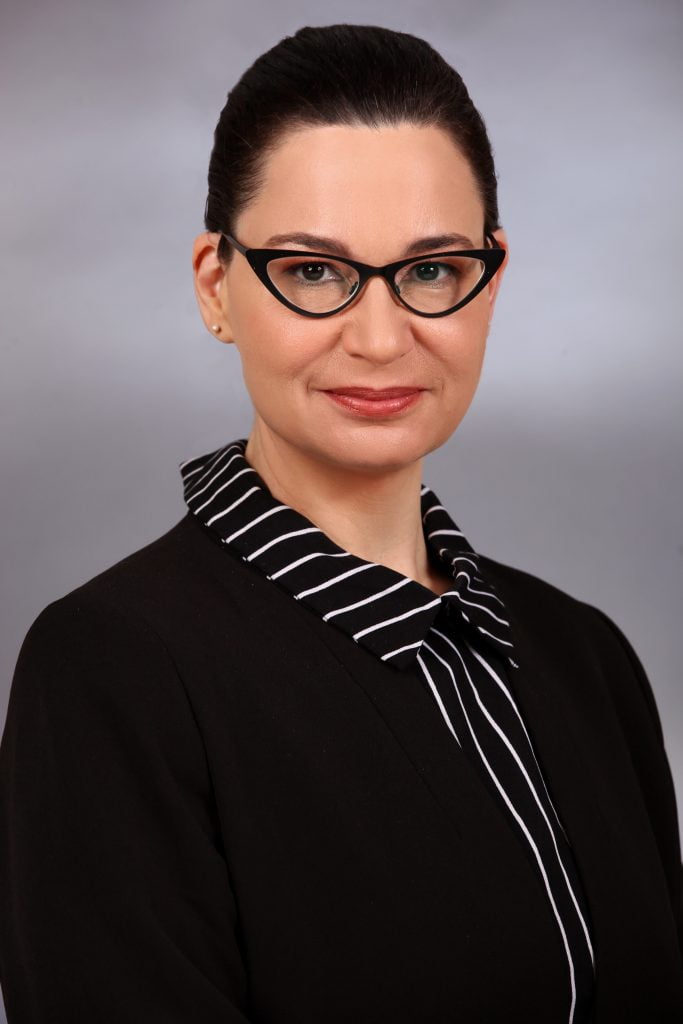
But this country is really dazzling in what Sharon calls, the “here and now.”
Technological solutions that used to take months or years are being developed in days or weeks.
“Our different industries are really working together and trying to come up with solutions to overcome this crisis,” she tells NoCamels. “It is the process of taking the right technology, working together with medical staff and our different communities… this process, more than the technology itself, is the difference here.”
This “process” of fast-tracking tech solutions during the Covid-19 pandemic is the result of a national task force led by the Directorate of Defense Research and Development (DDR&D) in the Israel Ministry of Defense, and which includes experts from the Ministry of Health, National Security Council, Ministry of Finance, Prime Minister’s Office, IDF, Innovation Authority, various hospitals, defense industries including Elbit Systems, Israel Aerospace Industries and Rafael Advanced Defense Systems, startup companies, think tanks and academic institutions.
This collaboration has brought forth new immediate technological solutions for ventilators, predictive systems, diagnostic methods, protective tech, and more.
“The brightest minds in the country, from all the various sectors, are committed and working around the clock in order to identify and develop the technological solutions that will contribute to the national effort to cope with the corona pandemic,” Director of the DDR&D, Brig. Gen. Dani Gold, father of the Iron Dome anti-missile system, said in a statement.
Indeed, this gathering of the country’s top IQs in different fields is whipping up quick, valuable solutions that could protect against the novel coronavirus and save lives.
Sign up for our free weekly newsletter
SubscribeIt took IAI engineers and their inter-disciplinary team one week to develop a sanitation solution using UV-C technology. Shamir Medical Center staff brought forward the need to disinfect hospital rooms, engineers at the state-owned defense contractor fast-tracked deployment of the technology.
Sharon tells NoCamels that while UV-C technology is not new, the robot-based disinfection system is. The system can disinfect hospital waiting rooms, corridors, and even aircraft interiors. But, Sharon notes, the UV-C light system busts germs and viruses on exposed surfaces only, and anything unexposed still needs to be wiped down manually.
The “cockpit” is another fascinating use of defense tech in the health sector.
It is a supervision system that makes it possible to collect data on ventilated COVID-19 patients in a single location while providing updated, comprehensive information on patients’ status and minimizing the exposure of medical teams to infection.
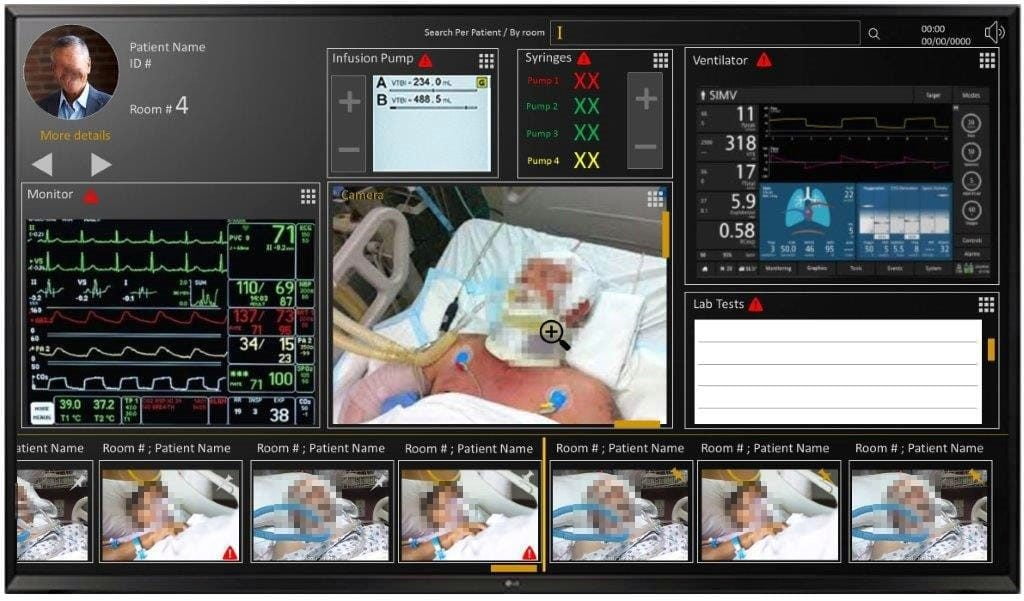
The “cockpit” is a collaboration of the Administration for the Development of Weapons and Technological Infrastructure (MAFAT), the State Companies Authority, IAI, Microsoft, and Soroka Medical Center.
“The great advantage of the system that was developed is its ability to simulate the routine situation in which I enter the room, see the patient, and collect data from all the devices around him. This is an important advantage that will allow us to cope safely and comprehensively with patient care management even in the era of COVID-19. I see benefits and the potential for widespread use of the system in the future as well. By means of its early warning capability and its ability to collect large amounts of patient data at early stages of the disease, we can produce a system that warns us of possible deterioration in a patient’s condition, so that we can respond earlier and possibly prevent it,” Prof. Yaniv Almog, Head of the Internal Intensive Care Unit for COVID-19 Patients at Soroka, said in a statement.
And the IDF is leading a project for a command-and-control system meant to link the country’s hospitals. If a second wave of coronavirus infections hits Israel, this system will show where staff and equipment is needed most and when.
“This system was a dream for many years. It took the army six weeks to build it,” a product manager from one of the military units responsible for introducing advanced technology into combat operations told Hebrew media site, N12.
“The combination of the technological capabilities of the defense industries and the extraordinary capabilities of the officers in the DDR&D, enables us to adapt systems developed for security purposes, to fulfill medical needs in light of the coronavirus,” Col. A, DDR&D in the Ministry of Defense, says in a press statement.
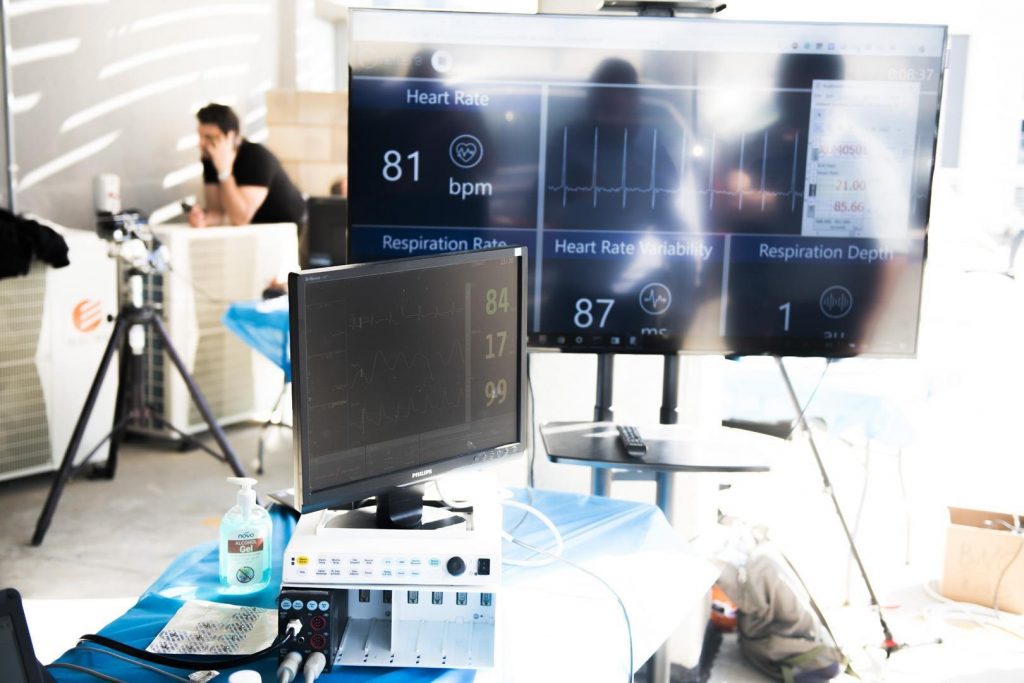
Meanwhile, the WHO recently announced that the coronavirus may never go away, and populations will have to learn to live with it.
With that in mind, it is all the more urgent for unmanned vehicles, missile precision, unique armored vehicle capabilities and other military technologies to be adjusted for the health sector.
“We are an industry that develops some of the world’s most advanced defense systems for the benefit of the State of Israel and our clients worldwide, and have been tasked with manufacturing medical systems – a field which we have only recently started to discover. The best minds in the field of missiles, aviation and space joined Inovytec, under the auspices of the Ministries of Defense and Health, and together we have established – in just a few days – an advanced production line for ventilators,” Boaz Levy, General Manager and Executive VP of IAI Systems, Missiles & Space Group, said at the March inauguration of an assembly line for ventilators at IAI’s missile division, in collaboration with the Ministry of Defense and Inovytec, which specializes in emergency medical systems. “We take pride in the ability to produce fast, unique and innovative solutions that meet current needs.”
Indeed, Israel’s specialty in quick repurposing of one technology for a new solution could prove to be a lifesaving gamechanger for our new routines – here and everywhere.
Viva Sarah Press is a journalist and speaker. She writes and talks about the creativity and innovation taking place in Israel and beyond. www.vivaspress.com
Related posts

Editors’ & Readers’ Choice: 10 Favorite NoCamels Articles

Forward Facing: What Does The Future Hold For Israeli High-Tech?

Impact Innovation: Israeli Startups That Could Shape Our Future


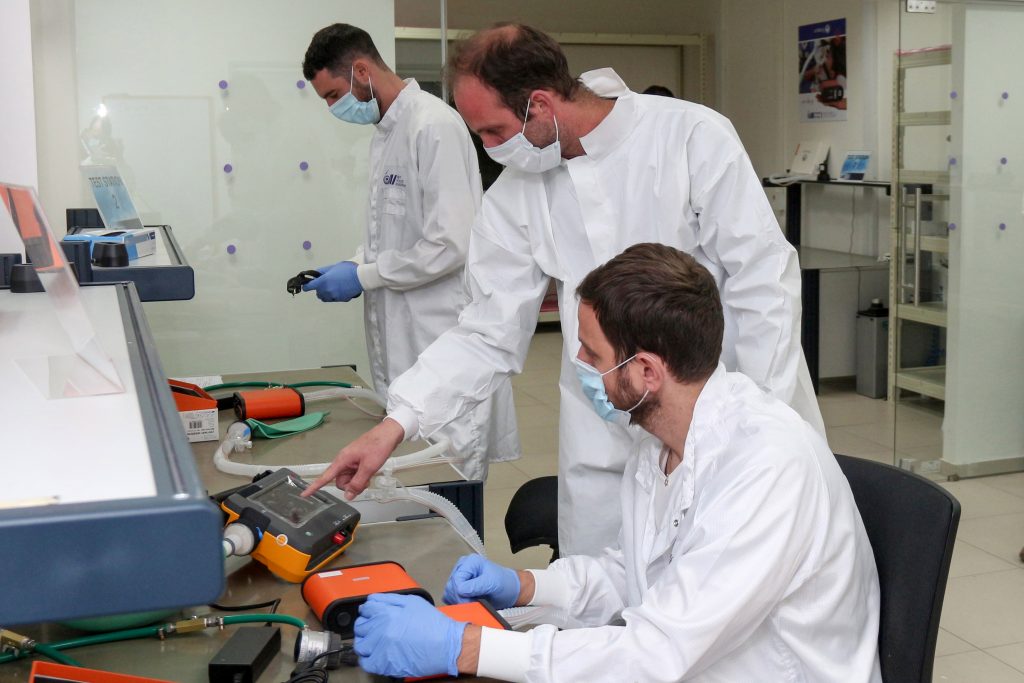
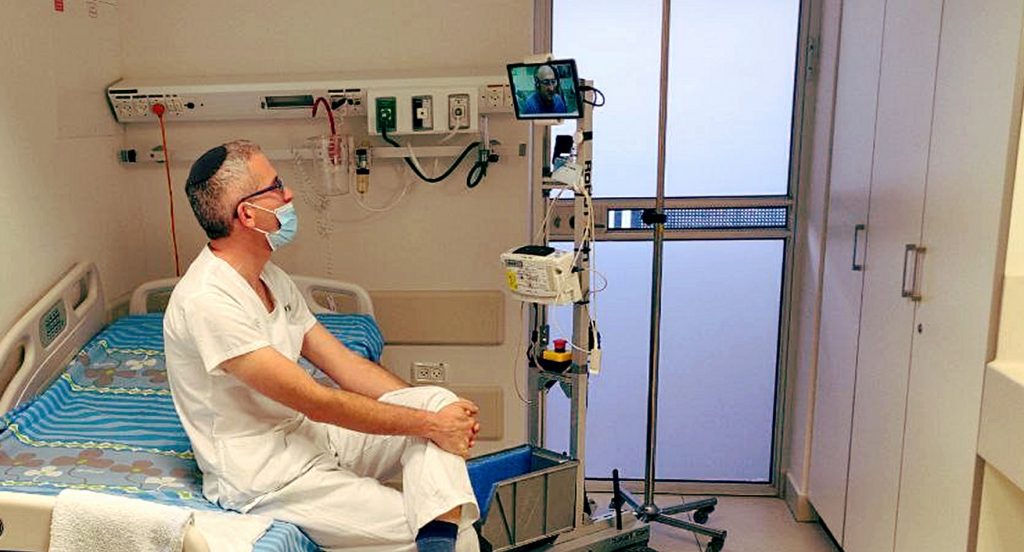


Facebook comments